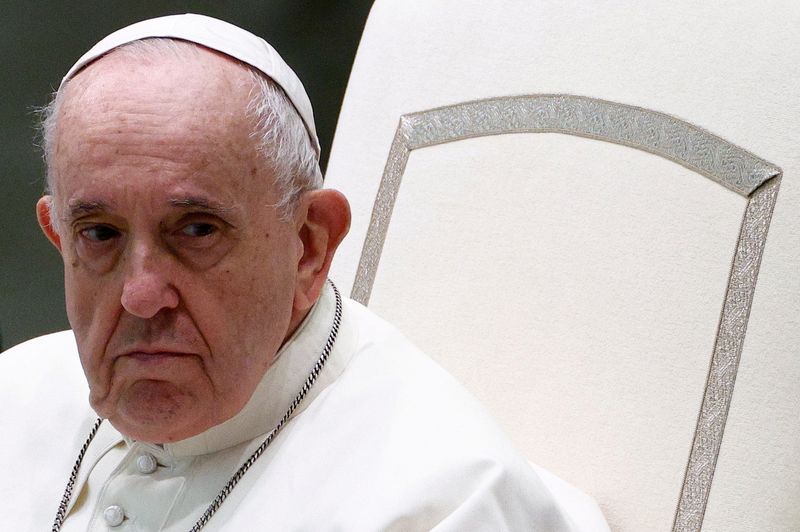By Philip Pullella
VATICAN CITY (Reuters) - Pope Francis said on Saturday he realises some people, including within the Church, consider him to be "a pest" for defending the poor and most vulnerable, but that it won't stop him as it is part of Christianity.
"Thinking about these situations (of exclusion and inequality), I make a pest of myself with my questions. And I go on asking. And I ask everyone in the name of God," said Francis, Latin America's first pope.
He called on pharmaceutical companies to release patents to make vaccines for COVID-19 more available to the poor, noting that only 3%-4% of the population in some countries had been vaccinated.
Francis, 84, was speaking by video link to the World Meeting of Popular Movements, a grouping of grassroots organisations and social movements which bring attention to inequality in labour, land ownership, health care and other social issues in the developing world.
He called on industries such as mining and lumber, "to stop destroying forests, wetlands and mountains, to stop polluting rivers and seas, to stop poisoning food and people".
Francis said rich countries and financial institutions should cancel the debts of the poorest nations. Weapons manufacturers and dealers should to stop contributing "to those awful geopolitical games which cost millions of displaced lives and millions of dead."
Technology giants should stop allowing hate speech, fake news, conspiracy theories, and political manipulation, he said, and called for a universal basic income and for countries to consider shortening the work day so more people could have jobs.
"This system, with its relentless logic of profit, is escaping all human control. It is time to slow the locomotive down, an out-of-control locomotive hurtling towards the abyss. There is still time," he said. "And so, I persist in my pestering."
He referred to criticism he has received in the past, especially from U.S. church conservatives, when he has issued similar appeals.

"It saddens me that some members of the Church get annoyed when we mention these guidelines that belong to the full tradition of the Church," he said referring to a compendium of Catholic social teaching issued by Pope John Paul II in 2004.
"But the pope must not stop mentioning this teaching, even if it often annoys people, because what is at stake is not the pope but the Gospel," he said.